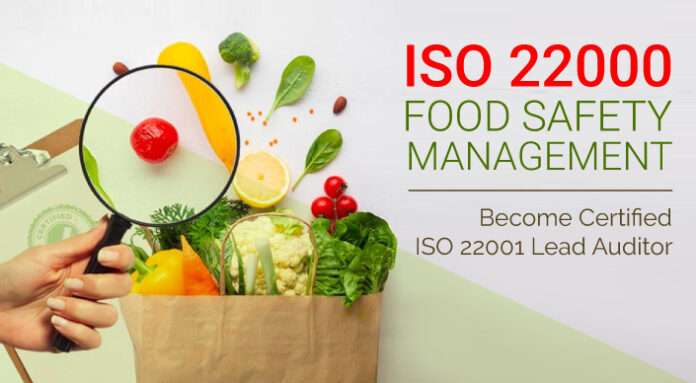ISO 22000 is considered the most important and widely used standard in the food industry. It is a worldwide accepted framework of food safety management systems (FSMS) that aids organizations in reducing and controlling various risks related to food safety along the entire food chain. For their effective implementation, companies often reach out to different ISO 22000 experts in Pakistan like Vanguard.
However, whether you seek expert assistance or take charge on your own, it’s compulsory to be aware of what elements are required for an FSMS so that you can work on these efficiently to obtain your desired ISO 22000 certification at the end. In this blog, we’ll take a brief look at these elements.
Which elements are the requirements for ISO 22000?
Though this standard is primarily based on HACCP with the incorporation of certain perquisites to guarantee safer food, It involves other crucial components too that you must keep in mind to establish a comprehensive and effective FSMS. These include:
- Policy for Overall Food Safety:
The first step is for businesses to create an overall policy outlining the context, objectives, and roles, and the company’s commitment to ensuring food safety. Make certain that every aspect of the policy is properly documented followed by proper communication with employees. Additionally, the policy must be periodically upgraded and reviewed.
- Analyzing and Evaluating Hazards:
It includes locating and assessing different physical, chemical, or biological hazards that may come into contact with food throughout the food chain. Identify relevant risks at every step i.e. from raw material to finished product while making sure that the analysis is documented well by a qualified team.
- Adopting PRPS:
It requires incorporating proper operational and general pre-requisite programs (GAP, GMP, etc.) that are fundamental to regulating everyday activities and working conditions within or outside the food enterprise. Programs for overall cleaning, hygiene, pest management, etc. fall under this category. Introducing these additional programs ensure that food protection is not compromised throughout the manufacturing. Several ISO consultants in Pakistan can also provide advice on such programs.
- Planning HACCP:
The most important requirement of ISO2200 is having a proper HACCP plan in place which allows locating and eliminating various risks in the food chain in a systematic way. Carefully identify various critical points of present hazards and put in place appropriate control measures to avoid or lessen their likelihood of occurrence.
- Emergencies Protocols:
Companies also need to have preparedness strategies and response plans for dealing with sudden emergencies jeopardizing food safety. Ensure to have properly documented emergency protocols that are revised and reviewed at regular intervals for better performance.
- Developing Management System:
For guaranteed success, organizations must develop and adopt a proper system of management that includes various guidelines, protocols, or practices that would be followed to manage all Food safety aspects e.g. systems for managing documents, conducting audits, and management reviews, etc.
- Establishing Communicating Procedures:
To assuring everyone’s participation, the companies need to set up proper internal and external communication protocols including communication with external parties like consumers, stakeholders, etc.
- Setting up Verification Protocols:
Verification is needed for making sure that applied safety protocols are functioning according to plan. This entails carrying out management or records reviews, and other internal audits. Contacting ISO 22000 experts in Pakistan is a great way to verify your developed system professionally.
- Establishing programs for Traceability, withdrawal, and non-conformities
As a part of ISO 22000 elements, organizations also have to document and put in place proper systems to trace or withdraw a product when needed, as well as processes to control any kind of non-conformity occurring in the product.
- Plans for Continuous Improvement:
Lastly, companies need to establish strategies to enhance their FSMS consistently. This entails locating areas needing improvement and putting appropriate measures in place.
To conclude, proper planning, execution, and documentation is the key requirement of every element of FSMS in accordance with ISO requirements. If you require professional assistance in fulfilling all the required ISO 22000 elements, get in touch with Vanguard Consulting’s ISO consultants in Pakistan.










